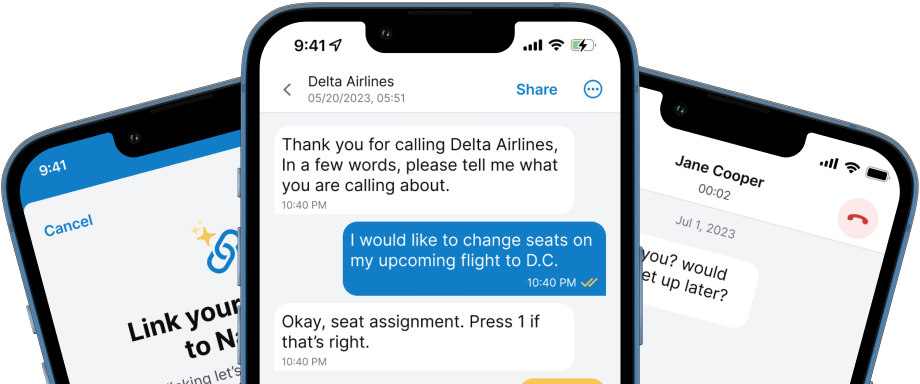Jobs for Deaf People
This blog will provide tips below on jobs for the deaf and explore some inspiring success stories proving that a disability does not define anyone!

We know that the deaf community has long faced unique challenges in finding employment opportunities but times are changing as I write this. Society is beginning to recognize the incredible potential and contributions that deaf individuals bring to the workforce. Long gone are the days where employers often hesitated to hire deaf candidates due to concerns about potential communication difficulties.
This blog will provide tips below on job hunting for the deaf and explore some of the inspiring success stories that prove that a disability does not define one’s ability to thrive professionally and give back to society. Those stories prove that with the appropriate training, competent skills, and the proper accommodations, you can pursue success in any career you choose.
ADA and Job Hunting

The Americans with Disabilities Act (ADA) stipulates that in the United States disabled individuals have certain rights in the workplace. The ADA considers anyone with a physical impairment that significantly limits their hearing abilities as covered by disability accommodation. This grants deaf and hard-of-hearing people access to resources to help them at their jobs, such as sign language interpreters during interviews, etc.
Accommodations also include:
- A videophone for video relay calls to communicate with co-workers or clients
- A personal FM system that broadcasts sound to hearing aids
- A visually based alert system as an alternative to a public address system
- Ensuring that all meetings are held in rooms with good lighting and that deaf and hard of hearing employees are able to face whoever is speaking
- Inviting in an interpreter for large meetings and trainings
Accommodations allow for the deaf and hard of hearing to truly shine in the workplace!
During the Interview Process
For deaf people, you know the anxiety before an interview can be unbearable. This is usually due to concerns with how your deafness will be viewed, if your access requirements will be met, and worrying it will stand against you in the grand scheme of things. It can be especially intimidating if the employer has never worked with deaf or hard of hearing employees before.
Below are a few tips you can implement to make sure your job interview goes smoothly:
- Request an interpreter prior to the interview or inform your interviewees how they can best support you. Remember that it is your right under the ADA to have communication access, and you’re entitled to an accessible interview. If they don’t have an agency they already contract with, provide your preferred list of agencies.
- During the interview, you should focus on showcasing your skills and elaborate on your credentials, so they are what stands out, not your disability. Demonstrate your value as a potential future employee of the company.
- After the interview and subsequent job offer, you may educate your prospective employer about what technological tools you use that can assist you in meeting the job criteria. Think of solutions. This will show that there are workarounds and you are not limited in the workplace. This can lead to fewer problems down the road if you are chosen by the employer.
(Side note: For employers who might be considering conducting a virtual interview with deaf and hard of hearing candidates, Rochester Institute of Technology put together a list of tips for effective interviews. Check it out!)
Jobs for Deaf People

Granted there are certain jobs where hearing is crucial to the profession; however, there are plenty of jobs that deaf and hard of hearing people perform just as well as people with hearing. Admittedly, sometimes jobs where hearing is not an integral part of your tasks and duties will be best for you.
Below is a list of 10 popular professions for the deaf, ranking from high to low, from the National Deaf Center on Postsecondary Outcomes for those who have a bachelor’s degree:
- Transportation and Material Moving (7.37%)
- Management (7.1%)
- Office and Administration (6.5%)
- Sales and Related (5.9%)
- Production (5.72%)
- Construction and Extraction (5.35%)
- Installation, Maintenance, and Repair (3.74%)
- Building and Grounds Cleaning and Maintenance (3.63%)
- Food Preparation and Serving (3.53%)
- Education and Library (3.26%)
As you can see, the possibilities are endless. In the following section, I will present some career prospects and some of the accompanying success stories.
Advocate
A well-known advocate for the deaf community, Nyle DiMarco, is a prime example of how deaf individuals can excel in diverse media careers. Not only did he win “America’s Next Top Model” in 2015 or “Dancing With The Stars” in 2016, he’s also a successful actor and deaf activist, promoting accessibility on multiple platforms.
Artist
A renowned artist, Christine Sun Kim, uses her experiences as a deaf person to explore sound and silence in her work. She has exhibited her art internationally and given a Ted Talk that challenges conventional perceptions of artistic expression.
Chef/Baker
A deaf chef, David Uzzell, worked at Marcel’s, a high-end fine dining French restaurant in Washington D.C. and went on to head the deaf pizza franchise Mozzeria’s second location in D.C. His experiences show that just about anyone can be a chef, even at a high scale restaurant in a fast-paced environment.
Receptionist
As the former White House receptionist under the Obama administration, Leah Katz Hernandez showcased the vital role that deaf individuals can play in high profile positions. She now works as an inclusion advocate for the deaf, disability, and Latinx-Hispanic communities.
Sign Language Interpreters
Certified Deaf Interpreters are specialists who provide interpreting and translation services in ASL and other visual and tactual communication forms used by people who are deaf, hard of hearing and deaf-blind.
Teacher
Some of these teachers work in private schools for the deaf, while others work with students in mainstreamed classrooms within the public system. Schools and universities often seek teachers who are deaf to teach American Sign Language to students as a secondary language. ASL is a burgeoning foreign language option at local high schools all over the country!
Fitness Instructor
Deaf fitness instructors can specialize in teaching other individuals who are deaf or hard of hearing to build a fitness community for the deaf community in their area. Janna Lukscha is the only deaf certified fitness instructor in the Rochester, NY area and her classes are called “Get Fit with ASL”. There are also tons of deaf fitness influencers you can find on Instagram and follow for advice and tips.
Job Hunting Assistance

Below are some tips and resources to take advantage of while job hunting:
- Check with the National Association of the Deaf for career opportunities. They work specifically with companies to create jobs for deaf people that take their needs into consideration. In a similar vein, Nagish assists corporate clients in recruiting and hiring both deaf and hard of hearing talent by streamlining the process and providing captioning and text-to-speech services, thereby making the hiring process more accessible.
- Every state has a Vocational Rehabilitation system, which can help you with your job search.
- The Federal Government has a Schedule A program that makes it easier for deaf and hard of hearing people and people with disabilities to get jobs.
- The Social Security Administration (SSA) has a “Ticket to Work” program that is designed to help people get training and eventually jobs. You have to be on Social Security for this service.
- The Federal Government also established Career One Stop Centers throughout the country. They provide job search assistance.
- If you are graduating college, you can also apply for the Federal Government’s Workforce Recruitment Program (WRP).
Final Words
Don’t let the fact that you are deaf, hard of hearing, use hearing aids, or have a cochlear implant hold you back because it does not define your capabilities as a professional. Deafness is no longer the barrier to gainful employment that it has been in the past. In fact, you’ll find that many companies are more than happy to accommodate your needs and help you create the ideal work situation. Let your abilities and credentials speak for themselves, not your disability.





